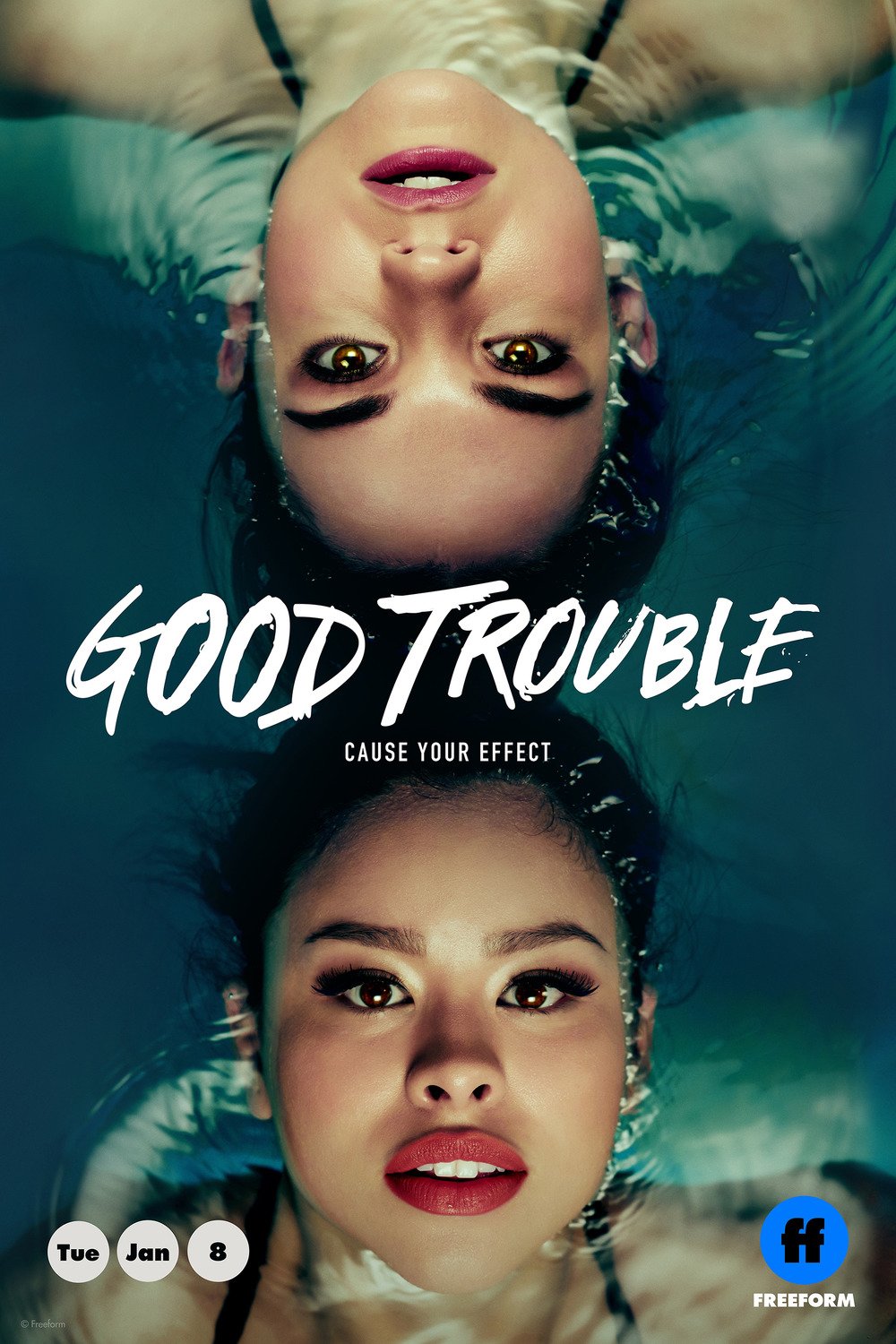Little did Kindred know that Ryan would give her the most complicated episode of the season. While she was shadowing L Word, she had gotten directing jobs on two emerging shows, Boomerang (BET) and Good Trouble (FX). Her experiences on those shows showed her she had what it takes to take on Generation Q’s karaoke night. “I was able to prep with my DP—which is sometimes rare—and my AD. We spent days inside of that club space. We got an old-school whiteboard. We started figuring out where the camera would be. We also did a lot of talking about a floating camera. There are parts of the episode where you don’t cut, but float to the next. Because of the episode, we didn’t have to be very conventional with how we got coverage. It was really cool to play with those elements. It was all of these moments of connectivity that we were trying to find through the camerawork.”
Kindred has developed a reputation for being detail-oriented, and for being a thoughtful collaborator. “TV is extremely collaborative–we know that from film school. But finding economy within that collaboration is the sweet spot that directors have to find. Film school doesn’t teach you that part. By that, I mean learning how to pick and choose your battles, and knowing that as a television director specifically, you’re a guest into somebody else’s world,” she says. Kindred describes the creative process this way: “How do you respect that world (of the show) and still find your voice as an artist, and how do you collaborate with not just your DP but your showrunners; and with your writers and other executives? Finding a meeting place between everybody’s perspectives. That’s before you get to set. You have to then create that same kind of environment with your actors and performers. Just respect and trust the people that were hired for this job.”
Kindred’s prowess as a collaborator may have been honed long before she found her way to SCA—she is the youngest of seven siblings! She always knew she wanted to write, and got the bug to be in the movie business as a high school student, when she happened on Gina Prince-Bythewood’s set for Love & Basketball: “She’s a woman, she’s black, she’s young–all of these things I didn’t think existed in Hollywood in terms of what directors are and what they looked like. She was right there, in the flesh.” However, a USC degree wasn’t always a goal. “I grew up 20 minutes away from USC, and I just wanted to get out of LA.” She decided on Clark Atlanta University, where Spike Lee had taken his first film classes.
After college she returned to LA but couldn’t land a job in the industry. After a couple years of struggling to break in, she signed up for a teacher-training program, but couldn’t resist Hollywood’s pull. “While I was teaching, I just couldn’t stop thinking about film,” says Kindred. “I really felt like I just gave up. I got a couple of “no”s and just retreated. I knew to be the filmmaker I wanted to be I needed to go back to school. I started reapplying to film schools, and that’s what brought me to USC.”
Kindred admits to going through SCA with an urgency to succeed. “It just meant something different at this point in time. I have given up something that I loved [teaching] to revisit this dream of being a filmmaker. Also, this was the first time I had to pay for my education myself. I definitely have to put everything into it,” she explains. “One thing I will say about USC—there were plenty of opportunities to do that. Every special project, everything that popped up, I tried for. I didn’t get everything, but the things that I did get progressed me so much as a filmmaker.”
Like many other alumni, she formed relationships with her peers that have endured. “They are family. We’ve worked on projects together. It’s been such an honor to see them come up in the industry at the same time. Those were the things I took from USC.”




